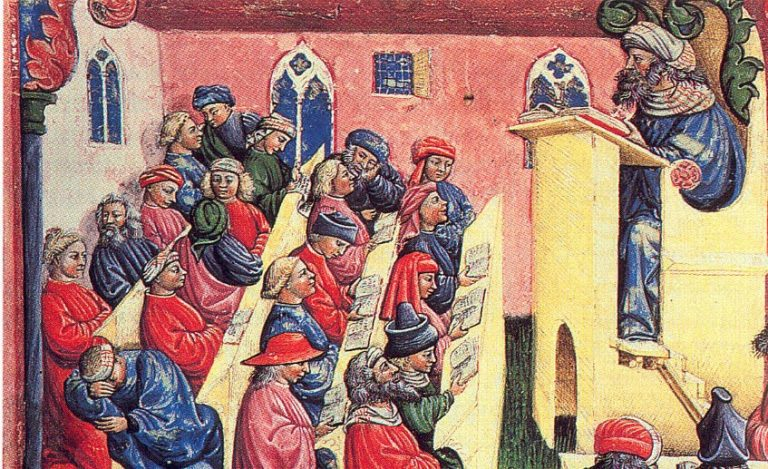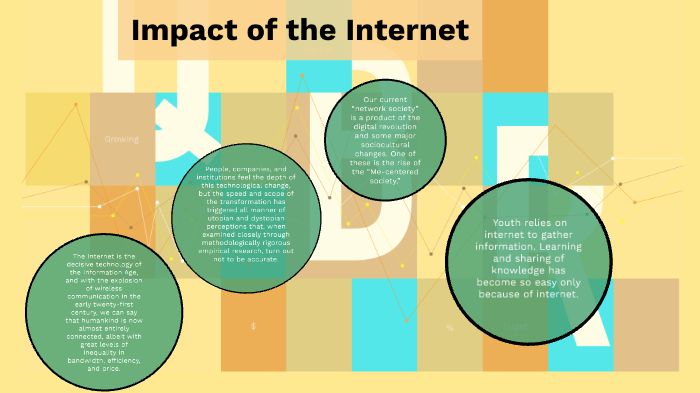
Medieval Studies Conference: A Global Gathering at Harvard
admin
- 0
The Medieval Studies Conference, held annually, stands as a beacon for scholars and enthusiasts of medieval history. This prestigious event draws hundreds of academics from around the world, creating a vibrant forum for the exchange of ideas and research on diverse topics, including works by iconic figures like Geoffrey Chaucer. Within the historic walls of Harvard Yard, attendees engage in workshops, plenary sessions, and lively discussions, fostering an enduring passion for medieval studies. It’s a chance not only to reflect on the legacy of the Medieval Academy of America but also to explore the evolution of this field in the context of modern scholarship. By uniting expertise and creativity, this gathering ignites conversations that resonate beyond the academic sphere, highlighting the relevance of medieval themes in today’s world.
This annual symposium dedicated to the exploration of the medieval era offers a unique platform for intellectual exchange and discovery. Scholars and researchers delve into various aspects of the Middle Ages, from historical trade practices to literary analysis of key texts, showcasing the interdisciplinary nature of their work. With a diverse array of presentations, attendees gain fresh insights into the complexities of medieval culture and its influence on modern thought. Furthermore, discussions often extend beyond the British Isles, examining global connections and cultural interactions during the medieval period. Events like these not only celebrate past achievements but also inspire future inquiry into medieval studies, making it a cornerstone of academic discourse.
Celebrating 100 Years of Medieval Studies at Harvard
The Medieval Academy of America has just celebrated a significant milestone, marking its 100th annual meeting at Harvard University. This prestigious conference has become a beacon for scholars in the field of medieval studies, attracting over 800 academics from across the globe. The event showcased a variety of presentations, workshops, and discussions, emphasizing the diverse research and interdisciplinary approaches that characterize the study of medieval history today. Attendees, including Ph.D. candidates, seasoned scholars, and industry experts, gathered to share insights and foster collaborations that will help drive the field into its next century.
Highlights of the conference included lectures on the evolution of trade agreements in medieval Europe and discussions surrounding the works of iconic figures like Geoffrey Chaucer. Scholars like Eileen O’Grady and Sean Gilsdorf captured the spirit of these moments, illustrating the rich heritage of medieval studies and its transformative journey from local scholarship to a more global perspective. These annual gatherings not only celebrate past achievements but also serve as a platform for future scholars aiming to influence the landscape of medieval research.
Interdisciplinary Exploration in Medieval Studies
One of the most fascinating developments observed at the Medieval Studies Conference was the notable interdisciplinary nature of the presentations. Students and established scholars alike presented research spanning various disciplines, shedding light on topics ranging from literature and trade to global history and cultural studies. The participation of students like García-Oteyza showcased how medieval studies have broadened, blending insights from different fields to create a rich tapestry of knowledge. This evolution reflects trends seen across academic conferences globally, where the importance of cross-disciplinary dialogue continues to gain recognition.”
Moreover, workshops such as the one led by Assistant Professor Anna Wilson on teaching the Global Middle Ages encourage students to explore various historical contexts beyond traditional European narratives. The aim is to provide a holistic view of the medieval era, one that encompasses diverse cultures and regions. As the field expands, academics are urged to remain open to various methodologies that challenge conventional boundaries, thus enhancing the vitality and relevance of their research.
Geoffrey Chaucer’s Legacy in Contemporary Scholarship
The relevance of Geoffrey Chaucer’s work in contemporary discussions was palpably felt during the conference, particularly through the lens of how historical authors grappled with issues still prevalent today, such as misinformation. Chaucer’s exploration of rumor and its consequences resonates with modern readers and writers as demonstrated by García-Oteyza’s insightful comparisons between Chaucer’s narratives and contemporary literature. This link between past and present emphasizes the timeless nature of literary inquiry and the importance of examining how historical texts continue to influence current discourse.
By delving into Chaucer’s narratives, scholars at the conference illustrate that medieval literature is not only a reflection of its time but also a critical commentary on socio-political issues that echo in today’s society. The interplay of creativity and truth, as seen in Chaucer’s work, opens up discussions about the ethical responsibilities of authors and the impact of their narratives—a theme that is increasingly relevant in an age dominated by digital communication and social media.
The Globalization of Medieval Studies
This year’s conference beautifully highlighted the growing global perspective within the field of medieval studies, showcasing research that spans various regions, including the Mediterranean, Africa, Asia, and Islamic territories. Scholars like Elena Shadrina shared their vital research on trade systems, reflecting how interconnected medieval societies were, despite geographical boundaries. This focus on globalization marks a shift in medieval scholarship as scholars increasingly recognize the influences that varied cultures had on each other, promoting a more inclusive understanding of medieval history.
Furthermore, the emphasis on bringing a global approach to medieval studies poses exciting opportunities for academic exploration. Specialized workshops, such as those targeting the teaching of the Global Middle Ages, underscore a commitment to enriching the educational framework that shapes future scholars. By broadening the scope of medieval studies, these events encourage young academics to think critically about how historical narratives intersect across different cultures, fostering an environment rich in diverse perspectives.
The Role of Academic Conferences in Scholarly Development
Academic conferences like the Medieval Academy’s annual meeting are crucial in fostering a collaborative atmosphere for scholars of all levels. They serve as a vibrant platform for presenting research, discussing contemporary issues, and connecting with peers and mentors. For many participants, such as Emily Sun, opportunities to exchange ideas and gather feedback are invaluable aspects of their scholarly journey. As the landscape of medieval studies evolves, these conferences remain at the forefront, driving innovation and encouraging discourse that can shape future research paths.
Moreover, the significance of networking during such events cannot be understated. Academics not only share their discoveries but also create lasting relationships that can lead to future collaborations, research projects, and publications. Conferences play a pivotal role in the academic community, allowing participants to engage deeply with others who are equally passionate, providing inspiration and momentum for their scholarly endeavors.
Reflections on Medieval Scholarship’s Evolution
The Medieval Academy of America meeting also served as an opportunity for introspection on how the field of medieval studies has evolved over the past century. Scholars like Sean Gilsdorf emphasized the importance of reflecting on historical milestones while looking forward to future trends. Such reflections encapsulate both a sense of pride in the development of medieval scholarship and recognition of the challenges that lie ahead, as interdisciplinary approaches and global contexts redefine what it means to study medieval history today.
This centennial gathering orchestrated a conversation about the scholarship’s trajectory, emphasizing the need for continued adaptation and growth. As new methodologies and technologies emerge, medievalists are called upon to embrace innovative approaches that will inspire the next generation of scholars. This moment of reflection and anticipation sets the stage for ongoing dialogue about key issues, themes, and practices that will shape medieval studies in the coming years.
Engaging with Medieval Texts in Modern Contexts
Engagement with medieval texts in contemporary discussions was a notable theme at this year’s conference. Scholars highlighted how reading and analyzing texts from writers like Chaucer can yield insights into modern societal issues. By placing historical texts within the context of current challenges, academics facilitate meaningful conversations that transcend time. The parallels drawn between Chaucer’s portrayals of rumor in “The House of Fame” and today’s landscape of misinformation emphasize the enduring power of literature to reflect human experience.
Through this engagement, medieval literature emerges not merely as a subject for academic analysis but as a vital part of collective cultural dialogue. The study of these texts can offer strategies for navigating modern complexities, allowing scholars to extract applicable lessons through rigorous analysis and interpretation, thereby breathing new life into ancient narratives.
The Future of Medieval Studies
As the conference concluded, discussions about the future of medieval studies became a focal point. Participants deliberated on the implications of technological advancements, shifting paradigms in research, and the importance of inclusivity within the field. The calls for a more diverse approach to medieval scholarship echo a broader trend in academia, where the integration of varied perspectives leads to richer discussions and deeper understanding. Scholars expressed their hopes for the next generation to build on the foundation laid by their predecessors, expanding the reach of medieval studies across disciplines.
The vision of embracing a more inclusive and interdisciplinary approach is crucial for the evolution of medieval studies. With a global perspective increasingly ingrained within research narratives, scholars are poised to explore unknown territories in medieval history, facilitating a dialogue that embraces the multiplicity of medieval experiences. This bold reimagining of the field may open doors to rich, unexplored landscapes that not only commemorate the past but also resonate with contemporary audiences.
Frequently Asked Questions
What is the Medieval Studies Conference and its significance?
The Medieval Studies Conference, primarily hosted by the Medieval Academy of America, is a leading academic gathering held annually to explore medieval history, literature, and culture. This prestigious event brings together scholars globally, fostering interdisciplinary dialogue, showcasing research advancements, and celebrating achievements in medieval studies over the past century.
How often does the Medieval Academy of America hold its conferences?
The Medieval Academy of America typically holds its annual conference every year, with the 100th meeting recently celebrated at Harvard. This milestone event included over 800 attendees and featured a variety of presentations, workshops, and discussions, highlighting the evolving nature of medieval studies.
What topics are typically covered at the Medieval Studies Conference?
Topics at the Medieval Studies Conference vary widely but often include medieval history, literature, culture, and interdisciplinary studies. Presentations can range from medieval trade agreements to the works of Geoffrey Chaucer, showcasing the global perspective of the field, including regions like Scandinavia, Africa, and Islamic areas.
What was the focus of the recent Medieval Studies Conference held at Harvard?
The recent Medieval Studies Conference at Harvard focused on the global aspects of medieval studies, featuring presentations on various geographical regions and encouraging participants to adopt a more inclusive view of the medieval era. The event also highlighted historical developments in the field and reflections on its future.
Who can attend the Medieval Studies Conference?
The Medieval Studies Conference is open to a diverse audience, including graduate students, researchers, and faculty members interested in medieval studies. Participants come from various academic backgrounds, providing a rich environment for collaboration and networking among scholars dedicated to exploring medieval history and culture.
What was a highlight of the Medieval Studies Conference at Harvard?
A highlight of the Medieval Studies Conference at Harvard was the diversity of topics and speakers, including graduate students presenting their research on medieval literature and trade. Additionally, the event marked the homecoming of the Medieval Academy of America, emphasizing its historical significance in the development of medieval studies as an academic discipline.
How can attending the Medieval Studies Conference benefit scholars?
Attending the Medieval Studies Conference offers numerous benefits to scholars, such as the opportunity to present their research, engage in discussions with peers, and network with experts in the field. This crucial platform allows for collaboration, feedback on academic work, and exposure to the latest scholarship in medieval studies.
What role does Harvard play in the Medieval Studies Conference?
Harvard University plays a significant role in the Medieval Studies Conference, serving as a host for the event and a hub for medieval scholarship. The Committee on Medieval Studies at Harvard organizes various sessions and workshops, highlighting the university’s contributions to the field and its ongoing commitment to medieval studies.
| Key Point | Details |
|---|---|
| Conference Overview | The Medieval Academy of America’s 100th annual meeting was held at Harvard with over 800 academics attending. |
| Themes of Discussion | Discourse around misinformation from Geoffrey Chaucer to contemporary literature, emphasizing the relevance of medieval studies in modern contexts. |
| Diversity of Presentations | Presentations covered topics as diverse as medieval trade, Irish cultural festivals, and medieval perspectives across different global contexts. |
| Networking Opportunities | Conferences like these provide platforms for academics to engage, collaborate, and re-energize their scholarly pursuits after disruptions like COVID-19. |
| Interdisciplinary Nature | The conference highlighted the interdisciplinary approach of medieval studies, blending history, literature, arts, and education. |
Summary
The Medieval Studies Conference serves as a crucial gathering for scholars interested in deepening their understanding of the medieval era. This year, the 100th annual meeting marked a significant moment, showcasing how the field has grown and adapted to contemporary challenges, especially concerning the intersection of historical insights and present-day realities. The rich discussions led by prominent academics reflect the ongoing importance of medieval studies in shaping our perceptions of history and culture. As we conclude this conference, it is essential to continue fostering an inclusive and comprehensive approach to medieval scholarship, ensuring it remains relevant for future generations.

